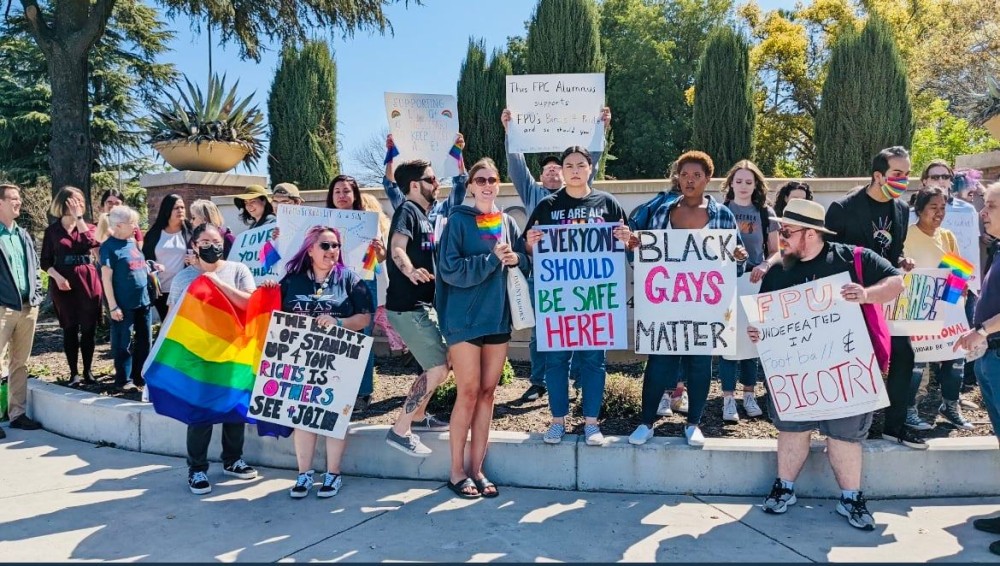Lawsuit against faith-based schools continues gaining steam

A class action lawsuit accusing the US Department of Education of wrongly allowing discrimination against LGBTQ students at faith-based schools has grown in number of participants and in general support over the past 15 months.
The Religious Exemption Accountability Project filed its lawsuit March 29, 2021, challenging Title IX exemptions granted to religious schools that received tax dollars through grants and scholarships.
Title IX currently applies to all schools that receive federal funding, including private religious institutions: “No person in the United States shall, on the basis of sex, be excluded from participation in, be denied the benefits of, or be subjected to discrimination under any education program or activity receiving Federal financial assistance.”
After the Education Amendments of 1972 were passed, discrimination based on pregnancy, sexual orientation, and gender identity also became prohibited.
However, private religious institutions are allowed to request exemptions based on their religious beliefs. The REAP lawsuit argues that all schools that accept federal funds should adhere to the entirety of Title IX.
“Plaintiffs ask this Court to declare that the religious exemption to Title IX, as applied to sexual and gender minority students, is unconstitutional and that the Department must enforce the protections of Title IX at all taxpayer-funded educational institutions, including at those institutions that discriminate and cause harm on the basis of sincerely held religious beliefs,” the lawsuit states.
Read our latest issue or browse back issues.
The lawsuit began with 33 plaintiffs and has since expanded to 46.
“We can’t add everyone to the case, because it becomes a little bit unmanageable at a certain point,” said Paul Southwick, director of REAP. “The idea of our case is that while we have 46 plaintiffs, they are standing in the shoes of all the queer, trans, and nonbinary students in these spaces. They’re representatives of the larger community.”
REAP has helped the plaintiffs report incidents of LGBTQ discrimination to the Office of Civil Rights of the Department of Education. Southwick said most of the plaintiffs filed Title IX complaints. Seven official investigations have been opened.
Southwick said the schools with open investigations regarding LGBTQ discrimination are Liberty University, Regent University, Lincoln Christian University, Clarks Summit University, La Sierra University, Azusa Pacific University, and Colorado Christian University.
Southwick explained that he hopes some of the cases will be thoroughly investigated and result in a resolution to protect LGBTQ people, but many will likely end up being dismissed due to the religious exemptions.
“That’s why we have the lawsuit to prevent those dismissals from occurring,” he said. “We want the investigations to continue to find out if there was discrimination, and if so, how to remedy it and protect the students.”
The lawsuit itself has progressed, and REAP officials are “waiting on some decisions from the court on plaintiffs’ motion for preliminary injunction and the defendants’ motions to dismiss,” Southwick explained.
In the meantime, Southwick said REAP will continue to focus on the Title IX investigations and on assisting LGBTQ groups with student activism at religious institutions. He also said he hopes the lawsuit will inspire religious schools to begin affirming LGBTQ students and their rights.
If a federal court rules that Title IX exemptions to taxpayer-funded religious schools are unconstitutional, religious schools will have to make a choice: comply with Title IX or lose federal funding.
“I like to look to history to instruct us on what is likely to happen in the future,” Southwick said. “Looking at the history of the civil rights movement, a lot of these religious schools that continued to practice racist policies, they don’t anymore. None of them. . . . I believe eventually the same thing will happen with respect to sexual orientation and gender identity. . . . I hope that day comes sooner than later, because the kids really need it.” —Baptist News Global





